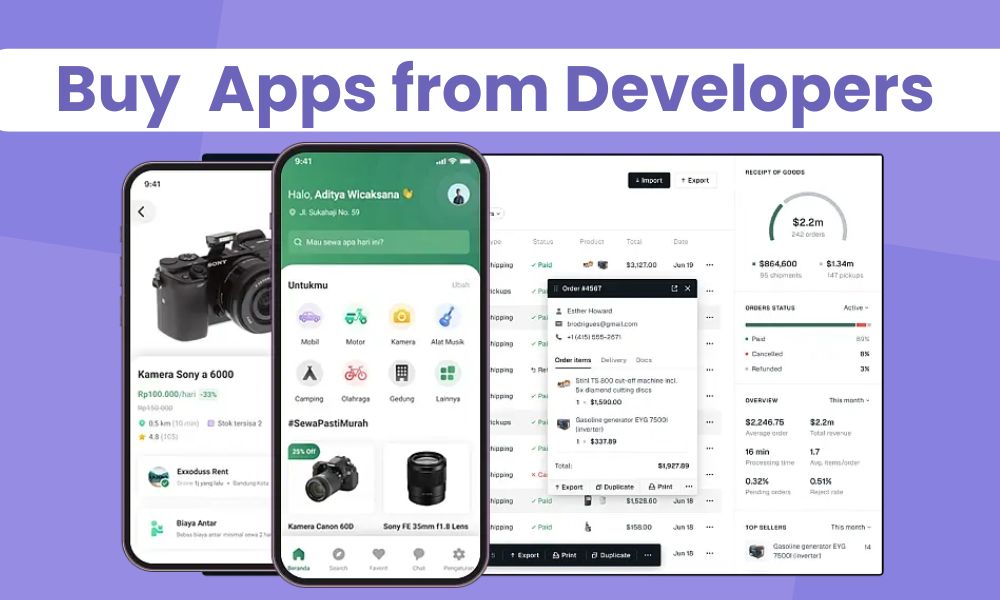Suppose you've been keeping an eye on the fintech industry. In that case, you've probably noticed the rapid rise in mobile payment solutions, and Cash App clone development is becoming one of the most talked-about business opportunities. Cash App, with its simple interface and powerful features, has transformed the way people handle their finances, from peer-to-peer payments to investing in stocks and Bitcoin. As the world continues to move towards cashless transactions, entrepreneurs are looking at how they can build similar platforms to capture this growing market.
So, what’s the deal with a Cash App clone app? Why should business consider developing a mobile payment platform inspired by Cash App? In this article, we’ll explore the potential of Cash App clone development and how it could be your next strategic business move.
The Growing Demand for Digital Payments
The financial landscape has shifted dramatically in recent years. Cashless transactions are no longer a novelty—they’ve become the norm. Whether it’s buying coffee, transferring money to friends, or investing in the stock market, digital payment platforms are deeply embedded in our daily routines.
In fact, the global mobile payment market is projected to surpass $9 trillion by 2025. The numbers speak for themselves—more consumers are ditching cash in favor of digital solutions. This shift is being driven by convenience, speed, and security, and it’s creating huge business opportunities for mobile payment providers. This is where developing a Cash App clone becomes a smart business strategy.
As people continue to seek out easier ways to handle their financial transactions, there’s a growing need for apps that allow them to send money quickly, pay bills on the go, and even make investments—all within one platform.
Why Consider Developing a Cash App Clone?
Now that we’ve established the growing demand for mobile payments, let’s look at why Cash App clone development could be an ideal business move for you.
1. Proven Success of Cash App
Cash App has established itself as one of the most successful mobile payment platforms in recent years. With millions of active users and a simple, intuitive interface, it has proven that there’s a significant market for such apps. By creating a Cash App clone app, you can tap into that success, offering a similar solution to users who are looking for secure, fast, and efficient ways to manage their money.
While your clone won’t be an exact copy, the foundation will be based on a product that has already gained widespread acceptance, which is a huge advantage for your business.
2. Multiple Revenue Streams
One of the most attractive aspects of developing an app like Cash App is the diverse revenue streams it can generate. Cash App is not just a peer-to-peer payment service; it also allows users to invest in stocks, buy and sell Bitcoin, and even get a physical debit card linked to their app.
By replicating these features in your Cash App clone, you open up multiple income channels:
- Transaction Fees: Charge a small fee for certain transactions, especially those involving international transfers or instant deposits.
- Investments: Enable users to buy stocks, Bitcoin, and other cryptocurrencies, and earn a commission on each trade.
- Business Services: Offer solutions for businesses to accept payments through your platform.
- Premium Features: Introduce subscription-based premium services that offer enhanced functionality, like increased withdrawal limits or exclusive investment tools.
By diversifying your revenue model, you can build a robust and sustainable business.
3. Customizable Features
One of the key benefits of developing a Cash App clone is that you can customize the features to suit your target audience. While Cash App’s functionality is straightforward, there’s always room for innovation. You can add unique features that differentiate your app from the competition. Some ideas include:
- Multi-currency support for international users
- Bill payment features for recurring bills like utilities and subscriptions
- Advanced security options such as biometric authentication and encrypted messaging
- Loyalty rewards for frequent users or businesses that accept payments via your app
This flexibility ensures that your Cash App clone app isn’t just a copy, but a unique offering that addresses specific needs within your target market.
4. Scalability
Once your app has been developed and is gaining traction, scalability is key to growing your user base and expanding your business. A Cash App clone is inherently scalable because it’s designed to handle an ever-growing number of users and transactions. Whether you’re targeting a local market or aiming for a global reach, your app can be adjusted to accommodate growth, allowing you to keep pace with the increasing demand for digital payment solutions.
The Development Process: What’s Involved?
Building an app like Cash App isn’t an overnight project, but with the right team and a solid strategy, it’s entirely achievable. Here’s what’s involved in the Cash App clone development process:
1. Market Research and Competitor Analysis
Before diving into development, it’s essential to research the market and understand what other similar apps offer. Analyze Cash App and its competitors, identifying key features that users love and areas where you can improve or differentiate. Conduct surveys or focus groups to gauge what potential users want from a mobile payment app.
2. UI/UX Design
A simple, intuitive interface is crucial for any mobile payment app. The design of your Cash App clone app should focus on ease of use, ensuring that even the most tech-averse users can navigate it with ease. This stage involves wireframing and prototyping, followed by the creation of a clean, user-friendly UI/UX design.
3. Backend Development
The backend is where the heavy lifting happens. You’ll need to set up robust server infrastructure to handle payments, transactions, and user data securely. This stage involves integrating payment gateways, ensuring compliance with financial regulations, and creating APIs for third-party services like stock trading or cryptocurrency exchanges.
4. Security Integration
Security is one of the most critical components of a payment app. Users need to trust that their money and personal data are safe. Implementing encryption, two-factor authentication, and other security measures is essential to protect both your users and your business.
5. Testing and Deployment
Before launching your Cash App clone, it’s vital to thoroughly test the app for bugs, glitches, and usability issues. This stage involves both manual and automated testing to ensure that everything functions as expected. Once the app has passed testing, it’s ready for deployment on the app stores.
6. Ongoing Maintenance and Updates
After your Cash App clone app is live, the work doesn’t stop there. You’ll need to regularly update the app with new features, bug fixes, and security patches. Additionally, customer support and user feedback play a significant role in keeping your app running smoothly and meeting user expectations.
Final Thoughts
The mobile payment industry is booming, and creating a Cash App clone can be your gateway into this lucrative market. With a proven concept, customizable features, and a range of potential revenue streams, the opportunity to join hands with the right on-demand app development company, build an app like Cash app is one that many businesses are eager to explore.
Whether you’re a business owner or an entrepreneur looking to make your mark in fintech, developing a Cash App clone is a smart and scalable way to enter the mobile payments market. With the right approach, your app can offer a unique solution that meets the evolving needs of today’s digital consumers.
If you’re ready to take the leap and start your Cash App clone development journey, working with a skilled development team will be key to turning your vision into a reality. Now is the perfect time to start building an app that could shape the future of mobile payments.


